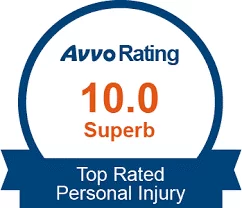The Benefits and Risks of going to Court For Child Injury Case
The vast majority of personal injury accident cases settle out of court—but what happens when the insurance company denies your claim or refuses to offer a settlement that comes close to covering the need? In situations like these, your attorney may deem it necessary to litigate your child injury case before a judge or jury. It’s not a decision to be taken lightly, so let’s explore some of the possible risks and benefits, along with some scenarios when going to court might be necessary.
When to Consider Going to Court
While each case involves a different set of circumstances and variables, your attorney—who is handling the negotiations with the insurance company—should have his finger on the pulse of those discussions, and he will have a fairly good idea of when talks aren’t moving the needle far enough in your direction. He also knows not just from these conversations, but past experience, if an offer is fair and reasonable.
Your attorney may suggest litigation in the following situations:
- When the insurance company is disputing material facts concerning the case in an attempt to defer blame;
- When the insurance company consistently offers “low-ball” settlements;
- When back-and-forth negotiations continue for an unacceptable length of time without coming to agreement;
- When the insurance company stops answering phone calls and emails;
- When the insurance company employs “stall tactics” to delay a resolution; or
- In any other situation where your lawyer feels negotiations will not get you a sufficient settlement.
Possible Risks of Going to Trial
Litigation can open the door for you to get more money, but unfortunately it also makes your outcome a lot more unpredictable. Here’s what you’re risking with a trial:
- Trial is a long process. A court proceeding will take up more time than you expect. There will be consultations with your lawyers, meetings with the other lawyers, court appearances. Expect to miss time from work and caring for your child. And more than the time required, ongoing court arguments over just what happened, and more, may delay your family’s ability to psychologically move on.
- Higher court costs and fees, which can eat up your settlement. Going to court is expensive. If your attorney is working on a contingency fee (taking a percent of a resolution, rather than billing), this may seem like less of a concern. However, even then, the court costs and attorney fees can actually cause you to net less than the insurance company’s settlement offer. Your attorney may compensate by asking the courts to charge the defendant with these fees, but it’s not a guarantee.
- Winning less than an expected settlement, or losing the case entirely. If the judge or jury favors the defendant’s arguments over yours, you could wind up with a lower payment—or worse, none at all.
Potential Benefits of a Trial For Child Injury Case
Despite the risks mentioned above, if the evidence favors you and your child significantly, you could win a higher payment in court—and in some cases a much higher one. If the judge or jury rule in your favor, you could get the full amount of your demanded settlement, plus additional punitive damages.
If your case is strong enough to win at court, chances are the insurance company will recognize that fact, as well—which is exactly why most cases do settle out of court. A good attorney will not be afraid to take a case to trial, but he will also be up front with you about the risks involved should a trial be necessary.
For a free consultation regarding your personal child injury case, call Greathouse Trial Law at (678) 310-2827. We’d love to talk with you.


